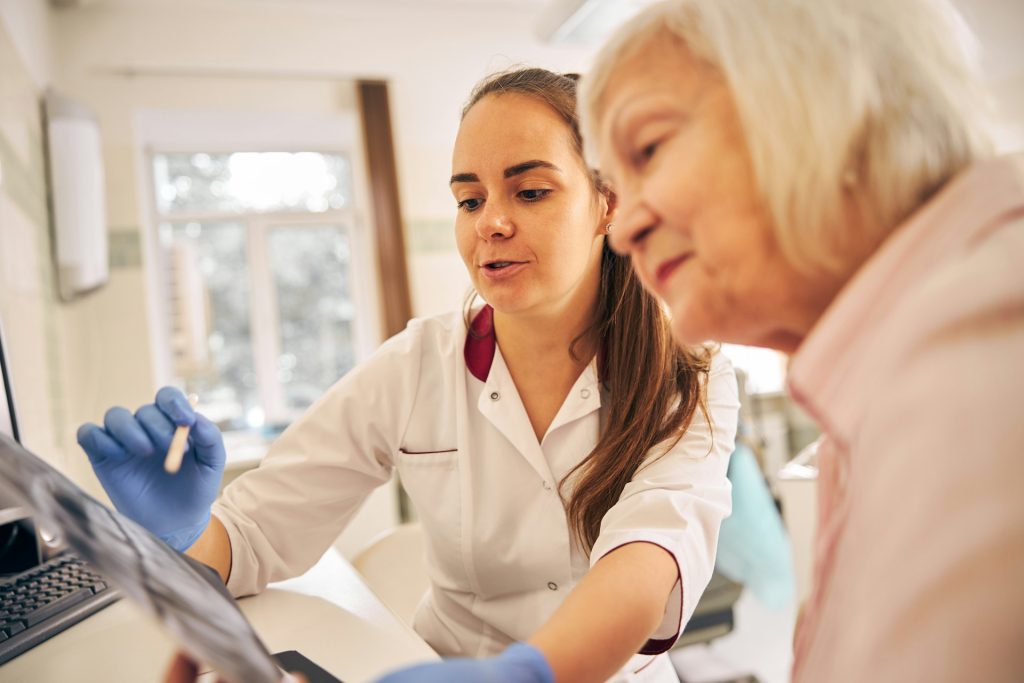An international research team, with significant involvement from the Medical University of Vienna, has developed a new AI-based analysis method that...
Vous n'êtes pas connecté
- English
- Français
- عربي
- Español
- Deutsch
- Português
- русский язык
- Català
- Italiano
- Nederlands, Vlaams
- Norsk
- فارسی
- বাংলা
- اردو
- Azərbaycan dili
- Bahasa Indonesia
- Հայերեն
- Ελληνικά
- Bosanski jezik
- українська мова
- Íslenska
- Türkmen, Түркмен
- Türkçe
- Shqip
- Eesti keel
- magyar
- Қазақ тілі
- Kalaallisut ; kalaallit oqaasii
- Lietuvių kalba
- Latviešu valoda
- македонски јазик
- Монгол
- Bahasa Melayu ; بهاس ملايو
- ဗမာစာ
- Slovenščina
- тоҷикӣ ; toğikī ; تاجیکی
- ไทย
- O'zbek ; Ўзбек ; أۇزبېك
- Tiếng Việt
- ភាសាខ្មែរ
- རྫོང་ཁ
- Soomaaliga ; af Soomaali
 Maroc - KNOWRIDGE.COM - A La Une - 19/01/2025 10:44
Maroc - KNOWRIDGE.COM - A La Une - 19/01/2025 10:44
Eye scan can predict stroke risk, study finds
A new study has revealed that a “vascular fingerprint” in the retina—the light-sensitive layer at the back of the eye—can predict the risk of stroke as accurately as traditional risk factors, but without the need for invasive lab tests. Published in the journal Heart, the research highlights a simple, practical method that could be particularly beneficial […]
Articles similaires
New AI-based analysis method can accurately classify and monitor brain tumors
An international research team, with significant involvement from the Medical University of Vienna, has developed a new AI-based analysis method that...
Same Poop, Different Results: At-Home Gut Health Tests Are Wildly Inconsistent, Study Finds
New research has found that different gut health testing companies can provide wildly different results from the same fecal sample. ......
Same Poop, Different Results: At-Home Gut Health Tests Are Wildly Inconsistent, Study Finds
New research has found that different gut health testing companies can provide wildly different results from the same fecal sample. ......
Around 30% of cuff blood pressure readings are inaccurate, study finds
Blood pressure checks are one of the most common medical tests in the world. Almost everyone has had their blood pressure measured during a doctor’s...
Study finds 3 deadliest risk factors of common liver disease
A little-known liver condition is quietly affecting more than a third of people around the world, and many do not even know they have it. This illness...
Study finds 3 deadliest risk factors of common liver disease
A little-known liver condition is quietly affecting more than a third of people around the world, and many do not even know they have it. This illness...
Expert reveals the hidden clues in your routine blood tests that could predict cancer risk ...
By the time cancer symptoms appear, the disease has already been developing for years, often leaving subtle clues in routine bloodwork long before...
Expert reveals the hidden clues in your routine blood tests that could predict cancer risk ...
By the time cancer symptoms appear, the disease has already been developing for years, often leaving subtle clues in routine bloodwork long before...
Infinix Note Edge Review – A Practical Mid-Budget Phone
The Infinix Note Edge emerges as a practical mid-range device to use. In terms of design, it looks neat and can even compete with other competitors in...
Les derniers communiqués
-
Evergreen Elevate Heads to Australia to Empower MSPs with Valuable Strategies and Insights on Better M&A Practices
Evergreen Elevate - 29/07/2025



